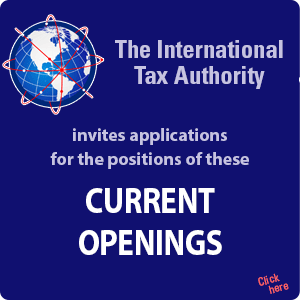Gov’t has no ‘undue influence’ over major report

Ryan Geluk
By Horace Mills, BVI News Online Staff
Financial services leaders in the British Virgin Islands (BVI) are sticking to their position that a report, which speaks glowingly of the territory’s financial services industry, is independent and factual although it was funded by the BVI government.
The BVI, which has been trying to dispel international claims that is it a tax haven, is painted in a highly positive light throughout the 135-page report titled: Creating Value – The BVI’s Global Contribution.
The author of the report, Capital Economics, was not paid to lie about what is truly happening in the industry locally and internationally, according to Gary Hayes, Head of Business Development at the government-owned BVI Finance. His job essentially is to help promote the territory’s financial services industry.
“I think it’s worth clarifying from a BVI perspective that we haven’t had any direct influence on the outcome of this report. It is a truly independent researched document,” Hayes said during a press briefing at the BVI Finance offices in Road Town yesterday, June 21.
He further told journalists: “This report [by Capital Economics] really sends out some very powerful messages that we in the BVI should be very proud of… The great thing is, it is not BVI Finance, it is not BVI firms saying that; it is an independent third party research document by Capital Economics that is saying that, and that’s brilliant for us because we can sing our praises from that particular report.”
In the meantime, Hayes yesterday stated that he did not immediately know how much money Government had spent to produce the report.
“Very importantly, Capital Economics would not do this report if there was any undue influence from Government, BVI Finance, or any industry. Their reputation is at stake here,” added Hayes.
He admitted that he too initially questioned aspects of the report, but he noted that Capital Economics was able to presented facts to back up its claims.
“We looked at some of the comments [in the report] and thought ‘we are not quite sure if these are correct’. So we in our own way challenged them as well. Capital came back every single time and said ‘this is where the data is from’. So everything has a reference point. They [Capital Economics said they] will not change the report; they will only produce what they have. So it’s about Capital Economics credibility. If you don’t know Capital Economics; they have done similar research projects for other jurisdictions around the world; and they have a global reputation for quality applications and productions,” Hayes further said.
The Capital Economics report claims that, among other things, the BVI helps to maintain 2.2 million jobs globally, and it contributes more than US$15 billion in tax revenues to governments world-wide.
Journalists, however, brought up the flip side.
There have been international claims that the BVI and its companies deprive other governments of revenues through money laundering as well as the operation of what is said to be a tax haven.
Financial services regulator credible
Ryan Geluk, who is a member of the BVI Finance board of directors, noted the Capital Economics report declaration that the BVI is not a tax haven.
“Tax haven is a term, is a buzz word; it is not a label; it is not a credible legal category of jurisdiction. It’s just a negative connotation that’s being put on by NGOs which we – over the years – have really dispelled,” Geluk further said.
In relation to allegations regarding money laundering, he said that issue is not a major concern, considering that the government-owned BVI Financial Services Commission is viewed as a credible industry regulator.
“With 415,000 companies [registered in the BVI], there is obviously going to be one or two that may be used for nefarious purposes. But the important things you will have to look at in these cases is the enforcement actions that are taken against this sort of behaviour.”
“The BVI has a reputation of taking enforcement action against [these] when there are breakdowns in anti-money laundering or terrorist financing – where there is a break down in terms of BVI companies being used for nefarious purposes,” added Geluk.
In the meantime, BVI Finance representatives further stated that they are mindful that forces will try to discredit the Capital Economics report.
They, however, intend to push back against damaging allegations – including those surrounding the so-called Panama Papers.
“We have asked them (Capital Economics) to go and address some of these issues – Panama Papers, tax evasion, all those elements. We’ve asked them to do a full review of everything, put that in the report, and then it’s really about the facts behind what their comments are,” Hayes further told journalists.
Bigger countries want the BVI out
In the meantime, Kedrick Malone, who is another representative of BVI Finance, urged the local media to help push the positives regarding the report.
He added that some larger countries don’t want the BVI to remain in the financial services industry.
“There are many agendas in this industry; we are a small country; there are many countries that feel that small countries should not be in financial services. So they have used the media to some extent with disinformation. But this study provides factual information that those same sources will now have to look at,” Malone further reasoned.
“The media – especially the local media – has a very significant role to play… It’s very important for the local media, particularly with the global spotlight on the BVI, to use this [Capital Economics] report to defend the territory’s position with facts, and not to allow the international media with varying agendas to blur what is a essentially a factually based report.”
Copyright 2025 BVI News, Media Expressions Limited. All Rights Reserved. This material may not be published, broadcast, rewritten or distributed.



















